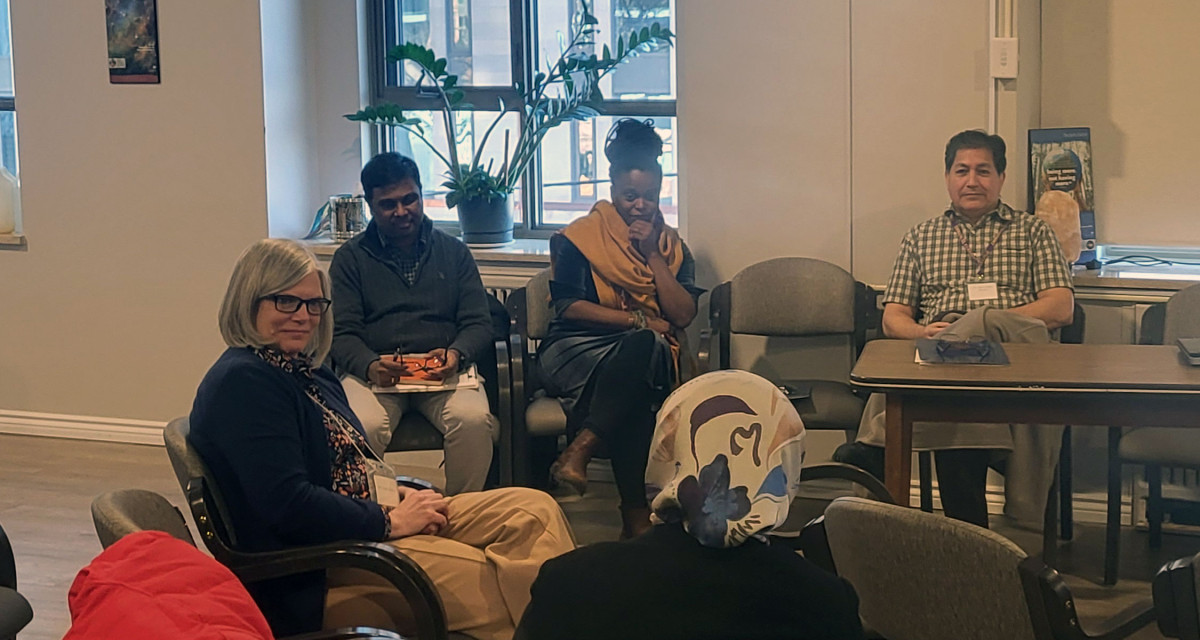Celebrating Religious Diversities in the 21st-Century Classroom

Attendees discussed interreligious teaching and learning at the Alway/Emmanuel Symposium in January. The conference explored bridging identities, redefining boundaries and advancing social justice.
By Michelle Voss
A groundbreaking conference from Jan. 12-14, 2025, co-hosted by Emmanuel College and the University of St. Michael's College, celebrated three significant anniversaries: the centennial of the United Church of Canada, Emmanuel's founding denomination; 15 years of Emmanuel's Muslim-focused programs; and 10 years of its Buddhist-focused programs.
Interreligious teaching and learning are happening both in classrooms (including in professional schools with a secular mission and in theological schools founded in a sectarian traditions), as well as outside of classroom contexts in social movements and activism circles. At the Alway/Emmanuel Symposium – Bridges and Boundaries: Religious Diversities in the 21st Century Classroom, scholars teaching in multireligious contexts from around the world came together for three days of lively plenaries, papers, workshops and poster sessions.
The conference investigated important questions that are related to interreligious teaching and learning both in and outside of classrooms. For example, what wise practices for bridging different identities and contexts have emerged in interreligious contexts? What boundaries remain important to observe, and what boundaries can be redefined? How can interreligious teaching and learning promote social justice?
A keynote address by Marianne Moyaert, a professor of comparative theology and the study of interreligious relations at the Catholic University of Leuven in Belgium, queried how Christians have historically constructed images of themselves and religious "others," and how this history impacts contemporary interreligious dialogue. Another plenary panel featured York University professor Randall Schnoor discussing his course on antisemitism and Islamophobia, with Shenandoah University's professor Imtiyaz Yusuf speaking on the shape that multireligious education takes in different contexts across Asia.
Posting about his experience at the conference on Facebook, Professor John J. Thatamanil of Union Theological Seminary in New York City wrote, "My time at this brilliant conference, the Alway/Emmanuel Symposium, has been deeply enriching, in large measure, because I got to listen to a range of younger scholars," reflecting on "justice, liberation, migration and displacement, settler colonialism, ecofeminism, and racism."
A podcast series is being generated out of the conference, the first episode of which, "Milestones in Multireligious Theological Education at Emmanuel College," featuring three Emmanuel College principals, is available here.
